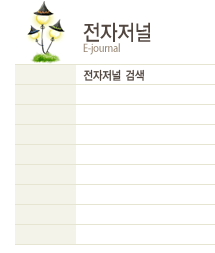 |
|

|
| Effect of Temperature Condition on Growth of Juvenile Abalone, Haliotis discus hannai with the Different Feeds
|
|
| Sung Hwoan Cho and Young Jin Cho |
|
| Division of Marine Environment & BioScience, College of Ocean Science & Technology, Korea Maritime University, Busan 606-791, Korea |
|
This study was performed to determine the effect of temperature condition on growth of juvenile abalone Haliotis discus hannai with the different feeds. A 2 (feed type; the dry sea tangle and experimental diet) × 2 (water temperature; 20 and 23℃, and 23 and 26℃ in the 1st, and 2nd feeding trials, respectively) factorial design was applied. Forty-five juvenile abalone averaging 10.1 g in the 1st feeding trial and 11.5 g in the 2nd feeding trial were randomly stocked into 6 of 50 L plastic rectangular containers each. Fishmeal, soybean meal and shrimp head meal was used as the primary protein source in the experimental diet. And dextrin and wheat flour, and soybean oil were used as the primary carbohydrate and lipid sources in the experimental diet, respectively. The dry sea tangle and experimental diet were fed to abalone once a day at the ratio of 1.5-2.0% total biomass of abalone with a little leftover in each experimental condition. Weight gain of abalone was significantly affected by feed type, but not by water temperature in the 1st feeding trial. Regardless of water temperature, weight gain of abalone fed the experimental diet was significantly higher than that of abalone fed the dry sea tangle. However, weight gain of abalone was significantly affected by water temperature, but not by feed type in the 2nd feeding trial. Weight gain was highest in abalone fed the experimental diet at 23℃, followed by abalone fed the dry sea tangle at 23℃, abalone fed the experimental diet and dry sea tangle at 26℃, which was lowest. Moisture and crude protein content of the edible portion of abalone was significantly affected by feed type, but not by water temperature in the 2nd feeding trial. However, ash content of the edible portion of abalone was significantly affected by water temperature, but not by feed type. In considering these results, it can be concluded that the well formulated feed was superior to the dry sea tangle for growth of juvenile abalone, and water temperature conditions of 20 and 23℃ seemed to be better than 26℃ to improve weight gain of abalone.


|
|
 v25_2_121-126.pdf (405.5K), Down : 150, 2010-04-07 15:40:03 v25_2_121-126.pdf (405.5K), Down : 150, 2010-04-07 15:40:03
| |
|
|
|
 |
|
사무국 & 편집국
: 충남 아산시 신창면 순천향로 22 자연과학대학 3317호
/ Tel: 041-530-3040 / E-mail : malacol@naver.com
|
 |
|
|
